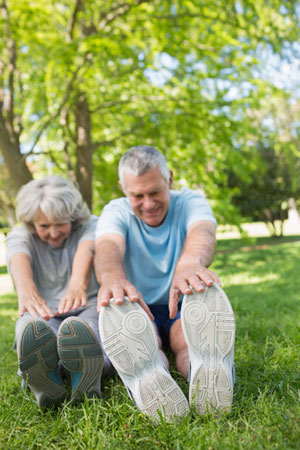 October may be Breast Cancer Awareness month, but many of our readers may be wondering if breast cancer is really something that seniors need to worry about?
October may be Breast Cancer Awareness month, but many of our readers may be wondering if breast cancer is really something that seniors need to worry about?
Well, according to the National Cancer Institute, the answer is a resounding yes.
More than half of all cancers affect people that are over the age of 65 – breast cancer is no exception. One in every eight women in this country develops invasive breast cancer during their lifetime and over 2,000 men each year.
This month, take the time to consider how making a commitment to better wellness habits and a healthier lifestyle might keep you or someone you love cancer free.
Breast Cancer 101
First things first: what, exactly, is breast cancer?
Put simply, breast cancer is, like other forms of the disease, a mass of tissue that will not stop dividing. Left unchecked, the cells spread, or metastasize, into other areas of the body—which is known as invasive cancer.
Up until recently, the focus for breast cancer treatments was on younger people, despite the fact that senior women account for more than 50 percent of all new diagnoses.
Breast Cancer in Older Adults
Older women tend to present with an advanced form of breast cancer. This is due to a number of reasons, but lack of self exams is partially to blame. One study looked specifically at women over the age of 65 to see why cancer detection comes so late in the progression of the disease. The researchers found probable causes include:
- Delay in seeing a doctor
- Poor knowledge about cancer
- Lack of self examination
An elderly patient is less likely to survive breast cancer, because it is not caught early enough for effective treatment.
Symptoms of Breast Cancer
Not knowing what to look for is part of the challenge senior’s face, so education is critical. Know your symptoms:
- A lump or mass in the breast that feels different from other tissue
- Discharge from the nipple
- Change in breast size or shape
- Dimpling, redness or peeling of the nipple or skin
- Inverted nipple
Regular screening means an early diagnosis and better chances of survival. This is true no matter what your age. Older women need to continue to do breast exams once a month even after menopause. At this point, the breast is fattier and less fibrous, so the detection of a lump is more significant. A mass in the breast is more likely to be cancer, as opposed to a benign mass or cyst.
The American Cancer Society suggests that all women over the age of 40 should get a mammogram once a year, though once every two years may be often enough for an older woman.
Treatment Options
The good news is treatments for this form of cancer are effective – over two million women a year become breast cancer survivors, mostly due to early detection. If caught in the beginning stages, you have a 98 percent chance of survival beyond five years.
The doctor takes the total health of the patient into consideration when creating a treatment plan. This is one reason living well, even as a senior, is so critical.
- Exercise at least 30 minutes a day, even if that means just taking a walk
- Manage your weight
- Moderate your alcohol intake
If your doctor suggests postmenopausal hormone therapy, ask if you should be getting a lower dose as high doses taken long-term have been known to increase the risk of developing breast cancer.
October is Breast Cancer Awareness month, time for you to get in touch with your body. You are the best judge of your breast health, because you know when something changes. As part of senior healthcare, ensure that you and your loved ones are performing monthly self-exams and talk to your doctor about how you can start living a healthier lifestyle that can aid in preventing breast cancer.












